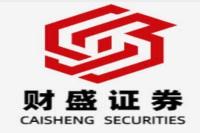Riding the Waves: Navigating China's Stock Market in December and Beyond (Meta Description: China stock market, December outlook, investment strategy, technology sector, cyclical stocks, policy analysis, macroeconomic trends, Zhongtai Securities)
Brace yourselves, fellow investors! December's market whispers are swirling, and understanding the currents is crucial for navigating the choppy waters ahead. Zhongtai Securities’ December outlook, while cautiously optimistic, reveals a landscape brimming with both opportunity and uncertainty. Forget the dry, corporate jargon—we're diving deep into the heart of the matter with a seasoned investor's perspective, unpacking the complexities of China's economic narrative and providing actionable insights you can use today. This isn't just another market report; it's your strategic roadmap to success, blending sophisticated analysis with a down-to-earth approach that cuts through the noise. We'll explore the reasons behind November's market rollercoaster, dissect the implications of both domestic and international policy shifts, and ultimately equip you with the confidence to make informed investment decisions. Prepare to gain a competitive edge, backed by expert analysis and real-world experience – let's chart a course for profitable growth! We'll analyze the interplay of fiscal and monetary policies, the impact of global events, and the crucial role of "active capital" in shaping market dynamics. Get ready to unlock the secrets to capitalizing on China's unique market characteristics and emerging trends. This isn't just about numbers; it's about understanding the human element within the financial ecosystem, and how that's impacting your investment potential. This in-depth analysis will decipher the complexities for you, providing clarity and confidence in your investment journey. So, buckle up and let’s explore the fascinating world of Chinese equities!
Zhongtai Securities' December Market Outlook: Key Takeaways
Zhongtai Securities' December market outlook paints a picture of cautious optimism. The firm's analysts believe the market's trajectory will hinge on two overarching narratives: "autonomous control" (technological self-reliance) and "domestic demand stimulus." This translates to a focus on technology and cyclical stocks, with a suggestion to consider lower-market-cap companies – but a warning against drastic style switching. Let's unpack this nuanced perspective in detail, revealing the subtle shifts and key implications for investors. The report highlights the delicate balancing act between government policy and market expectations, underlining how investor sentiment can sway the market tides. It's a complex interplay, and we'll demystify it for you.
November's Market Rollercoaster: A Deep Dive
November's market performance was a classic case of "up and down," a stark reminder of the volatility inherent in any market. The initial surge was fueled by optimistic expectations surrounding fiscal policy and a relatively loose monetary policy. The National People's Congress (NPC) meeting sparked anticipation of substantial fiscal spending, especially in areas like social welfare, consumption, and real estate. The central bank's introduction of repurchase agreements (repos), designed to boost bond market liquidity, further boosted confidence.
However, the mid-to-late-month correction stemmed from both internal and external factors. Internally, the actual fiscal policy measures fell slightly short of market expectations, and regulatory oversight tightened marginally. The approved 10 trillion yuan debt swap program, while substantial, didn't quite meet the overly optimistic projections of many investors. Furthermore, concerns arose regarding the program's potential implications for economic targets and the overall direction of future policy. Externally, the unexpected strength of Donald Trump's victory in the US elections added pressure. This triggered a "Trump trade" effect, characterized by a stronger US dollar and higher Treasury yields, potentially dampening external demand and placing constraints on China's monetary policy flexibility.
Maintaining a Cautiously Optimistic Stance
Despite the November fluctuations, Zhongtai Securities maintains a cautiously optimistic short-term outlook. This optimism rests on the argument that the valuation-driven nature of the current market rally has not yet been proven wrong. The report emphasizes that policy expectations remain a key driver of valuation volatility. The analysts argue that policy easing is unlikely to be reversed in the near term, driven by the need to counter deflationary pressures and maintain stability in key asset prices. The ongoing communication of supportive policy intentions further reinforces this view.
Policy Expectations and Market Dynamics
The report raises a crucial question: If policy expectations continue to fall short, is a significant market downturn inevitable? Zhongtai Securities believes that the market correction would be limited. They acknowledge the cautious outlook among domestic and foreign investors regarding policy effectiveness, but emphasize that the current structure of market funding and the "pricing power" dynamics suggest that continued policy easing will support upward market momentum. The report highlights the divergence between the perspectives of highly active traders ("active capital") and institutional investors. Active traders focus on the tone and consistency of easing measures, while institutional investors focus on the tangible results. This suggests that further policy easing could restore "pricing power" to active traders, potentially injecting renewed liquidity into the market.
Navigating the Trump Factor: Implications for China's Policy
The report also addresses the potential impact of a Trump presidency on China's policy direction. The primary concern is the potential pressure on monetary policy, stemming from exchange rate fluctuations. However, the report argues that the overall direction of policy easing will remain unchanged. Unlike the "Trump 1.0" era, where the focus was on financial deleveraging, the current priority is to alleviate economic slowdown, necessitating a more accommodative monetary policy. A stronger US economy under Trump would likely necessitate even greater domestic stimulus in China to counterbalance the economic divergence and alleviate downward pressure on the renminbi.
Investment Recommendations: Embracing the "Two Grand Narratives"
Zhongtai Securities recommends focusing on the “two grand narratives” of "autonomous control" and "domestic demand stimulus." This translates to investment opportunities in technology sector companies and cyclical stocks (infrastructure, real estate, and consumer-related industries). The analysts advise a strategy of "appropriate market capitalization lowering," suggesting investors might consider lower market cap companies, but caution against making sweeping style changes. The reasoning is that active capital's unpredictable preferences necessitate a more measured approach, emphasizing the importance of understanding who holds the pricing power at any given time. The report also notes the strong correlation between dividend yield factors and sector performance across different market phases, suggesting that a complete shift to high-dividend assets may not be the most opportune strategy.
Frequently Asked Questions (FAQs)
Q1: What is the biggest risk to this optimistic outlook?
A1: The biggest risk is that the actual policy stimulus will fall short of expectations, leading to a greater-than-anticipated economic slowdown. This could significantly impact market sentiment and trigger a more substantial correction.
Q2: How does the report define "active capital"?
A2: "Active capital" refers to highly active, short-term traders whose trading decisions significantly influence market prices in the short term. Their actions are often driven by immediate policy announcements and market sentiment rather than long-term fundamental analysis
Q3: What is meant by "appropriate market cap lowering"?
A3: This suggests investors should consider shifting their focus towards companies with lower market capitalization, believing that they might offer better potential returns in this market environment, especially those aligned with the "autonomous control" and "domestic demand stimulus" narratives.
Q4: Why should investors avoid style switching?
A4: The report advises against drastic shifts in investment style due to the unpredictability of active capital's preferences and the potential for increased risk and missed opportunities.
Q5: What are some examples of companies aligned with the "autonomous control" narrative?
A5: Companies in the semiconductor, software, and artificial intelligence sectors, among others.
Q6: What are some examples of companies aligned with the "domestic demand stimulus" narrative?
A6: Companies in infrastructure construction, real estate development, and consumer goods production.
Conclusion: Steering Through Uncertainty
Zhongtai Securities' December market outlook provides a valuable framework for navigating the complex and dynamic Chinese market. The cautious optimism, coupled with a focus on specific sectors and a measured investment approach, offers a well-reasoned strategy for investors seeking to capitalize on emerging opportunities. However, it's crucial to remain vigilant and adapt to evolving market conditions, paying close attention to policy developments and staying informed on global economic trends. Remember, successful investing requires a blend of sophisticated analysis and prudent risk management. Stay informed, stay adaptable, and stay profitable.



